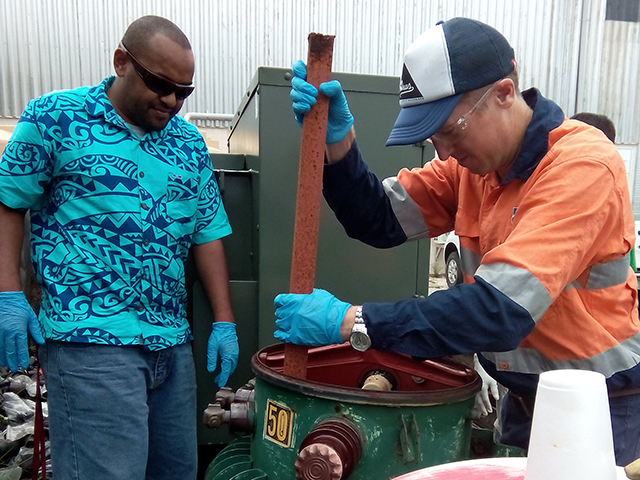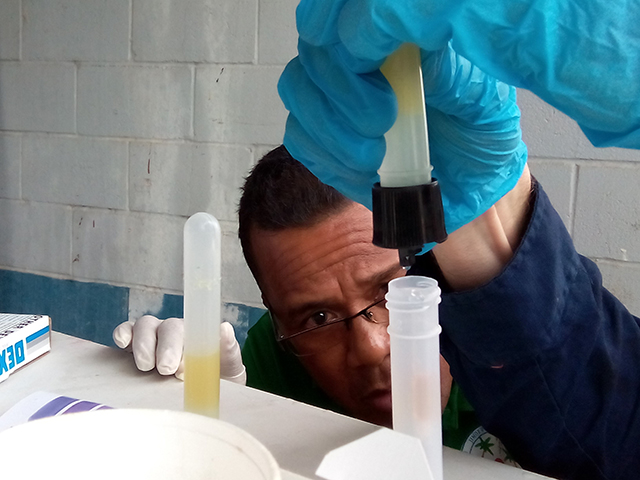
A new initiative in Republic of the Marshall Islands aims to rid the island nation of a dangerous class of toxic chemicals known as PCBs. Funded through the Pacific POPs Release Reduction Project, the ambitious pilot programme aims to make Republic of the Marshall Islands 'PCB-free' by the year 2020.
PCBs, or polychlorinated biphenyls, are industrial products or chemicals that were once widely used as an insulating material for electrical equipment, such as transformers and capacitors, and also in heat transfer fluids and lubricants.
The use of PCBs has since been severely restricted, even banned under the Stockholm Convention on Persistent Organic Pollutants (POPs), because of serious human and environmental health impacts. PCBs like all POPs are toxic, hard to break down and bioaccumulate in the tissue of living organisms causing disrupted immune and hormone responses, developmental delays and cancer. They are also a serious environmental contaminant.

Ms Lusiana Ralogaivau, Project Coordinator of the Pacific POPs Release Reduction Project at the Secretariat of the Pacific Regional Environment Programme (SPREP), explains that there are multiple elements to PCB Testing on RMI Project:
"Through this pilot programme we are working closely with the Government of Republic of Marshall Islands to develop an integrated system for the identification and management of capacitors, as well as instances of PCB contamination in other equipment, and to implement field testing, safe handling and storage techniques, and ultimately the off island disposal of contaminated equipment."
From 4-6 May, the initiative commenced with a three day training workshop on PCB management held in Majuro. At the training, participants from the Environmental Protection Authority in Republic of the Marshall Islands, Mobil Oil Micronesia, Majuro Energy Company and Majuro Atoll Waste Company learned about best practice methods for the field testing of disused and offline transformers, online transformers, capacitors and PCB containing equipment.
A key outcome from the training workshop was the development of a Draft PCB Management Plan as required under the National Implementation Plan for the Stockholm Convention.

Ms Moriana Phillip, General Manager of the Environmental Protection Authority in Republic of the Marshall Islands, explains that the training workshop also resulted in the development of a Reconnaissance Plan to test all unlabeled capacitors in Marshall Islands – the outcome of which will be the completion of a national PCB inventory and disposal programme:
"PCBs are a potentially serious issue here in the Marshall Islands, especially on the atolls of Majuro and Jaluit where contamination is suspected to have occurred through poor past management of old PCB-contaminated electrical transformers. This recent training has been very useful in helping us to move forward on this issue. We are now one step closer to our goal of being able to rid the county of materials containing PCB by the year 2020."
The Pacific POPs Release Reduction Project, funded through the Global Environment Facility - Pacific Alliance for Sustainability (GEF-PAS), aims to reduce Persistent Organic Pollutants (POPs) in the Pacific region through the improved management of solid and hazardous waste.
The project is co-funded by Agence Française de Développement (AFD). It is executed by the Secretariat of the Pacific Regional Environment Programme (SPREP) and implemented by the United Nations Environment Programme (UNEP) and the Food and Agriculture Organization (FAO). For more information, please visit www.sprep.org/stopthepops